
Bundesliga
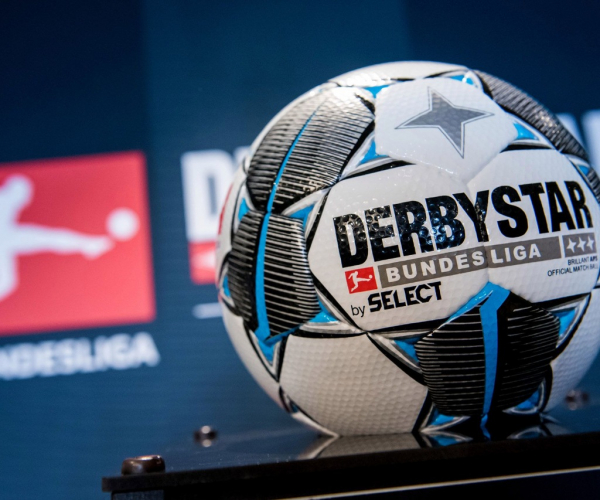
1962 Germany
The Bundesliga is the national competition of the first division in Germany, which has been in force since 1963, making it one of the latest of the five major European leagues to be established.
Origins of German soccer
Until then, there was no centralized league in German soccer, but five regional semi-professional leagues composed the best teams to lead them to a final, where the German champion would be decided. The 1962 World Cup in Chile was a turning point for Germany, as the national team lost in the quarterfinals to Yugoslavia, a dismal result for the 'Mannschaft'.
Birth of the Bundesliga
Thus, the 1963/64 season was the first in the history of the Bundesliga, which was made up of the following sixteen teams, ordered from highest to lowest in that season's standings: Cologne, Meidericher, Eintracht Frankfurt, Borussia Dortmund, Stuttgart, Hamburg, 1860 Munich, Schalke 04, Nuremberg, Werder Bremen, Eintracht Braunschweig, Kaiserslautern, Karlsruher, Hertha Berlin, Preusen München and Saarbrücken. The Bundesliga trophy is called the 'Meisterschale'. Uwe Seeler was the top scorer in the first season of the championship. The legendary Hamburg and German national team striker scored thirty goals, and is the top scorer in Bundesliga history with four hundred and four goals in four hundred and seventy-six games, ahead of Gerd Müller.
How it works
Of the eighteen participants, the Bundesliga's first-placed team was entitled to play in the preliminary round of the European Cup, while the Cup winner qualified for the European Cup Winners' Cup. Currently, the top four qualified for the Champions League, the fifth for the Europa League and the sixth for the preliminary rounds of the Europa League. The bottom two would be relegated directly to the second division, while the third would play a round-robin play-off (first leg at the Bundesliga team and second leg at the Zweite Bundesliga team) with the third-placed team from the Zweite Bundesliga, who would play for promotion to the first division. Likewise, the top two finishers from the German second division go directly into the top flight.
First winner in the history of the competition
Cologne thus became the first team in history to win the Bundesliga. Among their team were such seminal players in the club's history as Wolfgang Overath and Hannes Löhr. The first Bundesliga goal scorer was Borussia Dortmund's Friedheim Konietzka. In addition, Preusen Münster and Saarbrucken were the first teams to be relegated to the second division. Hertha Berlin, despite finishing in seventeenth place, took part in the Fairs Cup, which was not based on championship rankings but on the tourist interest of city fairs.
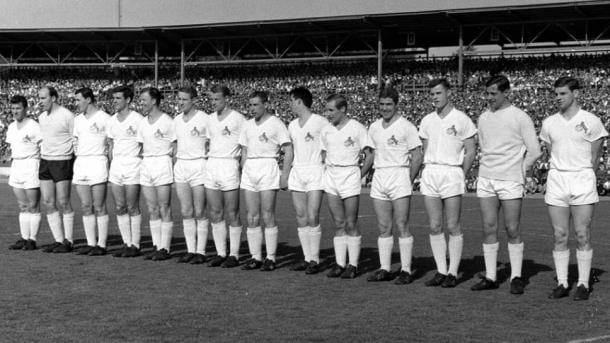
The course of the 1960s
No team was the strongest of the sixteen teams in the new format. Werder Bremen, 1860 Munich, Eintracht Braunschweig and Nuremberg were the next winners of the tournament. After Bayern Munich had won it in 1968/1969, Borussia Mönchengladbach became the first team in the history of the competition to do so. Borussia Mönchengaldbach would later repeat, thus beginning the rivalry in the 1970s between the two teams, which dominated the national scene.
The strongest rivalry in the history of the championship
The 1970s were marked by the name of Borussia Mönchengladbach and Bayern Munich, who shared the championship throughout the decade. Thus was born the first great German rivalry, between two teams that would experience a golden era in German soccer. Those were the years in which the German national team won the 1972 European Championship and then the 1974 World Cup against Johan Cruijff's 'Clockwork Orange'. That is why the "Mannschaft" was full of players from both teams, such as Gerd Müller, Paul Breitner, Berti Vogts, Sepp Maier and Jupp Heynckes, among others. Thus, the 'Meisterschale' was shared out until 1977, when Cologne won their second Bundesliga after winning it in the inaugural season. Four went to Borussia Möchengladbach, who won three in a row, while Bayern won three until they recovered from their slump in 1979. Cologne was followed by Hamburg, who were already preparing to make it big in Europe by winning the European Cup in 1983.
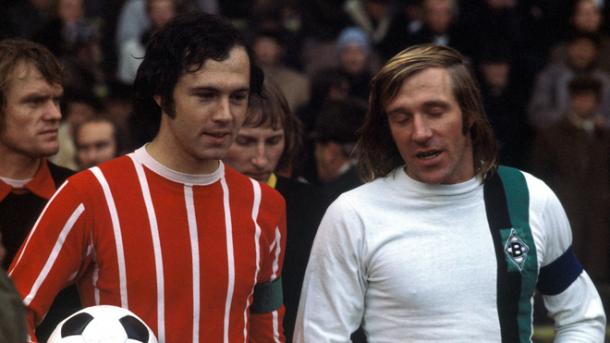
Only Hamburg stood up to Bayern Munich
Then Borussia Mönchengladbach slipped out of the championship race, and Bayern went through a two-year transition until 1979, when they won the Bundesliga again. In the 1980s, Hamburg saw the best moment in their history, winning the European Cup in 1983 and winning the Bundesliga in 1981 and 1982. Stuttgart and Werder Bremen joined the party in different years, although Bayern still won the most trophies.
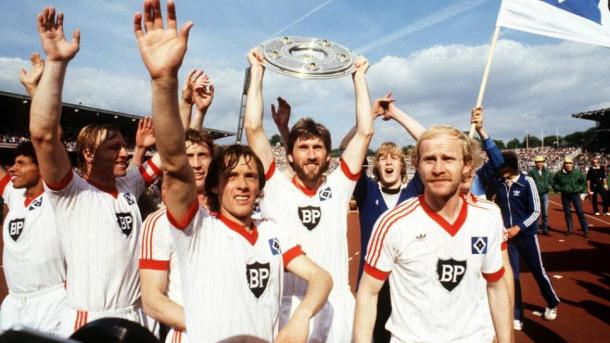
The 1990s without an owner
Up to five different teams won the Bundesliga in the 1990s: Stuttgart (1991-92), Werder Bremen (1992-93), Kaiserslautern (1990-91, 1997-98), Borussia Dortmund (1994-95, 1995-96) and Bayern Munich (1993-94, 1996-97, 1998-99, 1999-00). These were years in which Borussia Dortmund entered the fight to be among the best in Germany and Europe, as they won the Champions League in 1997 with Ottmar Hitzfield, who would later do the same with Bayern Munich. It was with the rise of the 'Borussiens' that another of the great rivals, between them and Bayern Munich, gradually began to emerge. In addition, Borussia Dortmund's Matthias Sammer was the winner of the 1996 Ballon d'Or, the last one for a player who had played in the Bundesliga.
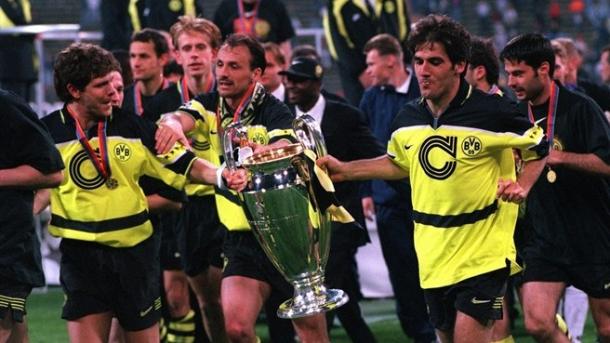
The 2000s and the rise of Borussia Dortmund
Wolfsburg would go on to win the Bundesliga in 2008, adding another new winner to the competition. Bayern Munich remained the great rival to beat, not only in Germany but also in Europe, where they won the 2000-01 UEFA Champions League against Valencia. In 2008, Jurgen Klopp arrived at Borussia Dortmund, a coach who would change the course of the club's history, after having coached Mainz 05 for eight seasons in which he promoted them to the Bundesliga and then relegated them again. The German installed at Borussia Dortmund an attacking soccer that caught on in Germany, and managed to beat Bayern Munich in 2010 and 2011 consecutively. The departure of vital players such as Mario Götze, Robert Lewandowski and Matt Hummels weakened Dortmund, and they have not been the same since.
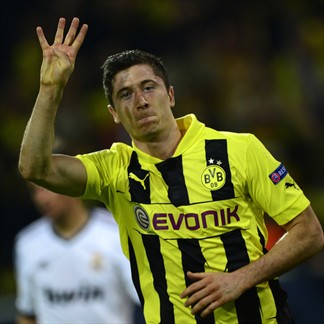
Munich's current form and power
In the last decade, other teams such as Schalke 04 and Wolfsburg have stood out, but Bayern Munich have continued to outclass their rivals. In large part this is due to the fact that Schalke's ability to bring in big stars is linked to their lack of feeling of belonging to the club, so that when they start to stand out they leave immediately. Such is the case of players like Sané, Manuel Neuer, Mesut Özil, Tilo Kehrer or Leon Goretzka. Bayern's hegemony is due to its status as a giant in German soccer. It is the club with the most European Cups in Germany (5), as well as the most domestic tournaments. To date, the club that has been coached by great coaches such as Heynckes, Guardiola or Ancelotti has already won seven consecutive Bundesliga titles.
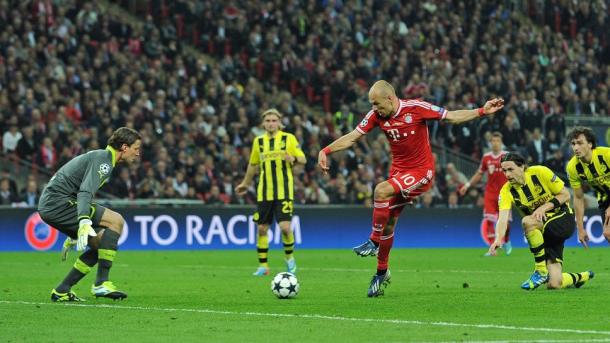
Rise of new clubs and the 50+1 law
Financial investment has meant that new clubs have now established themselves in the Bundesliga. Hoffenheim was a mediocre club until Dietmar Hopp joined the club as an investor in the 1990s. It then began to climb the ranks at the turn of the century and Ralf Rangnick, one of the best coaches in German history, took over the club and led it to the top flight for the first time in its history in 2008. After a poor season in the first, Julian Nagelsmann took over the club in 2016, and the following season lifted the club to be the best in the club's history. This is the youngest coach in the history of the competition to make his debut with a team as a coach, when he was just twenty-eight years old. That season they finished third and qualified for the UEFA Champions League with players such as Niklas Sule, Sebastian Rudy, Kramaric and Demirbay. In addition players such as Roberto Firmino or Kevin Volland played for Hoffenheim.
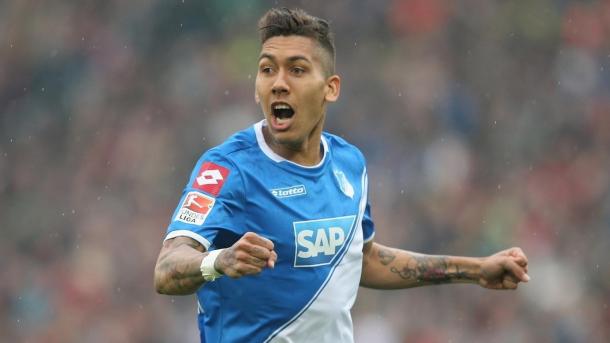
From Hoffenheim to Leipzig, Julian Nagelsmann swapped young RB Leipzig for Hoffenheim in 2019, in a club history that has similarities although 'the red bulls' have been earlier to make their Bundesliga debut. The energy drink giant invested millions of euros to bring RB Leipzig into the Bundesliga in less than a decade. It was founded in 2009, and in 2016 they were already in Bundesliga, where they have remained ever since. Their "artificial" rise in German soccer makes them one of the most hated clubs in the country. And the fact is that in Germany there is a rule called 50+1, which is that fifty percent plus one vote of the shares belong to the club's members, thus having a majority against investors. This makes the Bundesliga a unique competition, thus preserving the loyalty of the fans and so that the clubs are not threatened by outside investors. There are two exceptions to this rule, Bayer Leverkusen and Wolfsburg. The 50+1 rule allows an investor or company to own the majority of the club if they have been with the club for more than twenty years, thus ensuring their permanence at the club.
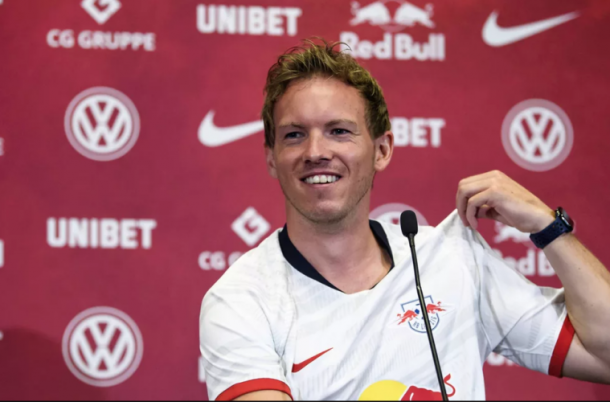
Greatest rivalries
There has not been a definite classic match since its inception - it has simply been played out according to the circumstances of the clubs and their form. In the 1970s it was Borussia Mönchengladbach vs Bayern Munich, being one of the strongest in its history. Currently, 'der klassiker' corresponds to the clash between Borussia Dortmund and Bayern Munich, and some important clashes are: the Rhür derby between Borussia Dortmund and Schalke and, in recent seasons, Bayern Munich and RB Leipzig.
Statistics
Gerd Müller is the top scorer in Bundesliga history, with three hundred and sixty-five goals in four hundred and twenty-seven matches. Robert Lewandowski is third in the ranking, forty-one goals behind second-placed Klaus Fischer. In terms of most appearances in the competition, Karl-Heinz Körbel, former Eintracht Frankfurt player between 1972 and 1991, made six hundred and two appearances in the Bundesliga, starting all but two of them. Franck Ribery is the player with the most titles, winning nine in eleven years with Bayern Munich. Udo Lattek is the coach with the most Bundesliga titles, winning eight. In terms of the historical ranking, Bayern Munich is first and Werder Bremen second, the latter being the team with the most participations in the competition together with Hamburg, with a total of fifty-five in the fifty-seven played. Since its creation, twelve teams have won the tournament: Bayern Munich (28), Borussia Dortmund (5), Borussia Mönchengladbach (5), Werder Bremen (4), Hamburg (3), Stuttgart (3), Cologne (2), Kaiserslautern (2), 1860 Munich (1), Wolfsburg (1), Eintracht Braunschweig (1) and Nuremberg (1).
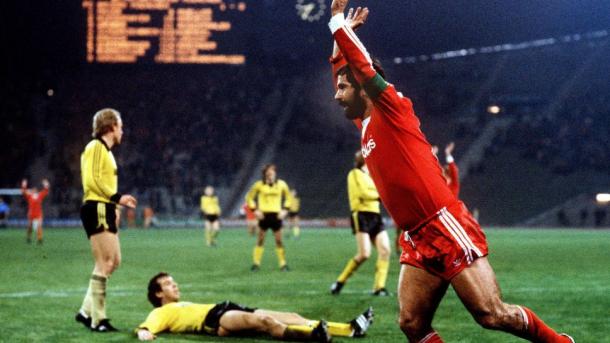
Until the 2017/2018 season Hamburg were the team that had contested every edition of the Bundesliga a fact for which they are known as 'the dinosaurs'. A bad run led to their relegation to the Zweite Bundesliga.
Curiosities
A German club was the forerunner in the use of advertising on the jerseys. It was Eintracht Braunschweig in 1977, when the German liquor brand Jägermeister was the pioneer in the world of soccer.
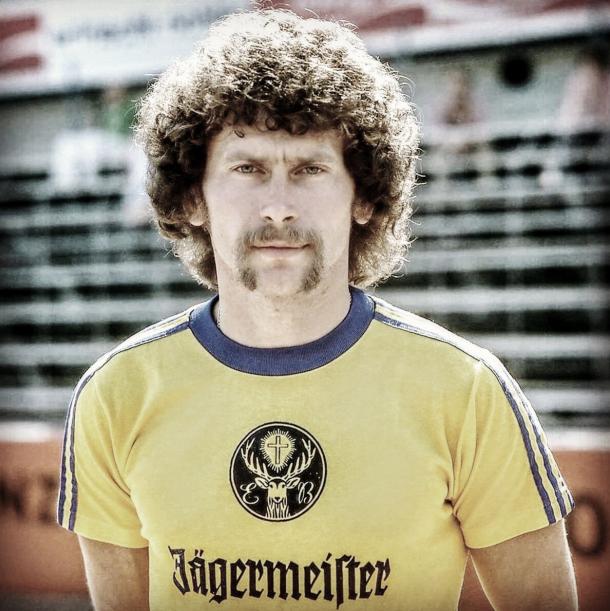
Biography by Jorge Cascón Guerra








































